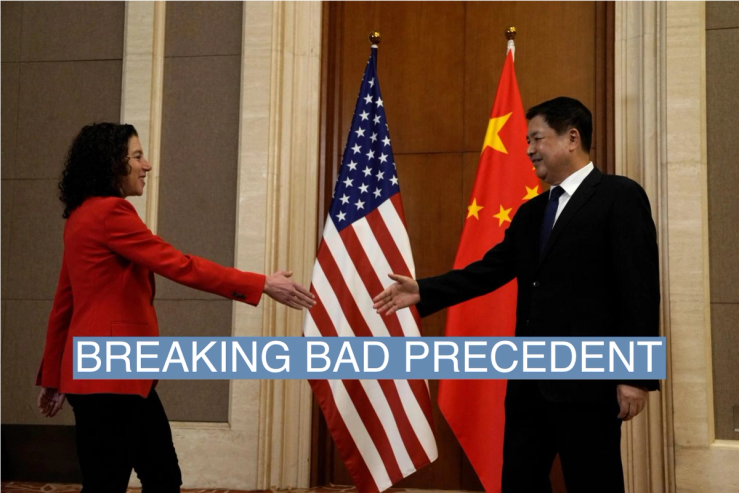The News
U.S. officials in Beijing resumed talks with China Tuesday on tackling the narcotics trade, a sore spot for the two countries’ relations amid mounting evidence that Chinese companies are supplying global drug cartels with the chemicals needed for fentanyl production.
Negotiations stalled after China pulled the plug on initial dialogue in 2022, following former U.S. House Speaker Nancy Pelosi’s visit to Taiwan. But President Joe Biden and Chinese leader Xi Jinping agreed to cooperate on drug trade at the APEC meeting in November.
Analysts said the resumed talks signify Beijing’s intention to patch up relations with Washington after a particularly contentious year. But nearly all agree there will be no immediate deal, and that both countries face hurdles in solving the crisis.
SIGNALS
Beijing wants to show Washington it can still be a strategic partner
In restarting the drug trade dialogue, Beijing may be seeking to dispense with “skepticism that China is not willing to cooperate” with Washington, one Jinan University academic told The Wall Street Journal. But statements from Chinese officials suggest that Beijing “expects more concessions from the U.S. side” before they will take action, China analyst Sari Arho Havrén of the Royal United Services Institute told Semafor – for example, by endorsing China’s claim to sovereignty over Taiwan. She pointed to a statement from China’s Minister of Public Security who this week reiterated that the U.S.-China relationship “gains from cooperation and loses from confrontation.” Beijing is also hoping the negotiations will help it regain its global reputation as a “drug cop” which has largely been tarnished by the supply of narcotics to countries in Southeast Asia, Brooking’s Vanda Felbab-Brown told Semafor. China has historically failed to directly target triad leaders — many of whom provide a variety of services to the Chinese government — which “undermines rule of law in China,” she said.
Will much change without Mexico’s cooperation?
As with China, Mexico’s cooperation with the U.S. on counternarcotics is “profoundly hollowed out,” a 2023 Brookings report argued last year. While China supplies Mexican drug cartels with chemicals needed for fentanyl, Mexican President Andrés Manuel López Obrador has refused to cooperate with U.S. drug trafficking agencies, exacerbating the crisis, Brookings reported. “There’s no denying that Mexico is on its way to becoming a narco-state,” wrote El Financiero columnist Pablo Hiriart, arguing that no external actors will be able to solve the opioid trade to the U.S. unless the Mexican government doubles down on drug cartels. Mexico’s upcoming presidential election will have a profound effect on how the next six years look for the drug trade, with Hiriart warning that candidate Claudia Sheinbaum — López Obrador’s protégé — will likely continue his policy of “hugs, not bullets” in combating the cartels, if elected.
To stop the drugs trade, China needs to fix more than just the chemical supply
Chinese triads’ dealings with cartels extend beyond chemical shipments into money laundering operations, trade in endangered and exotic wildlife, and the human trafficking of Chinese migrants, according to a report from Diálogo Americas, a Latin American security magazine published by the U.S. military. While there is no evidence that Beijing directly benefits from these activities, widespread corruption means local leaders “are at least indirectly benefiting from or turning a blind eye” to cartel operations, the report stated, allowing them to flourish. If Beijing is serious about stopping the drug trade, it must go beyond shutting down chemical companies, the analysts said. Policies could include enforcing business ethics compliance for Chinese firms overseas, strengthening anti-wildlife trafficking laws, and banning social media sites such as Douyin from promoting illegal migration routes through Latin America that can facilitate human trafficking.



